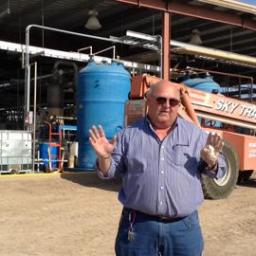Mining Lithium from sea water...
 With increasing industrial demand, rising prices, political and environmental concerns, there's renewed interest in extracting valuable minerals from large bodies of salt water. The most profitable of these being lithium, due to demand for advanced batteries in portable electronics and electric vehicles. This is just a variation on a theme, as lithium "mines" already use brine pools to extract the lithium. But extending the process to seas, oceans, or even the salty output of geothermal power plants, offers the promise of practically limitless supplies (estimated as 230 billion tonnes) of the valuable material.
With increasing industrial demand, rising prices, political and environmental concerns, there's renewed interest in extracting valuable minerals from large bodies of salt water. The most profitable of these being lithium, due to demand for advanced batteries in portable electronics and electric vehicles. This is just a variation on a theme, as lithium "mines" already use brine pools to extract the lithium. But extending the process to seas, oceans, or even the salty output of geothermal power plants, offers the promise of practically limitless supplies (estimated as 230 billion tonnes) of the valuable material.There's some interesting explanation at lithiummine.com if you can get past its promotional bent:
Lithium has historically been produced from two sources: brines and hard rock mining. Producing lithium from brines remains the most efficient and cost effective process. The cost-effectiveness of brine operations forced even large producers in China and Russia to develop their own brine sources or buy raw materials from brine producers.
These brines contain lithium derived mainly from the leaching of volcanic rocks and vary greatly in lithium content, largely as a result of the extent to which they have been subject to solar evaporation. They range from highly concentrated lithium deposits in the high altitude salars of Chile, Argentina, Bolivia, Tibet and China where lithium concentrations can be very high; to mid-level brines like Silver Peak, Nevada and Searles Lake, California (a former location of lithium production); to lower concentration brines like the Great Salt Lake, Utah. The lower concentration brines have modest evaporation rates and dilution is constant due to a large volume of fresh water inflow and small lithium concentrations varying between 30 to 60 ppm.
The market takes care of such thing. You can hardly fault people for eating tasty steaks when they cost about an hour of labor... When there's 2 billion more people demanding steaks, and the price shoots up through the roof, Americans will eat far fewer of them, and maybe a lot more rice.
But in the mean-time, trying to shame Americans into changing their habits today, to match some distant future hypothetical scenario is silly and futile, and also completely unnecessary.